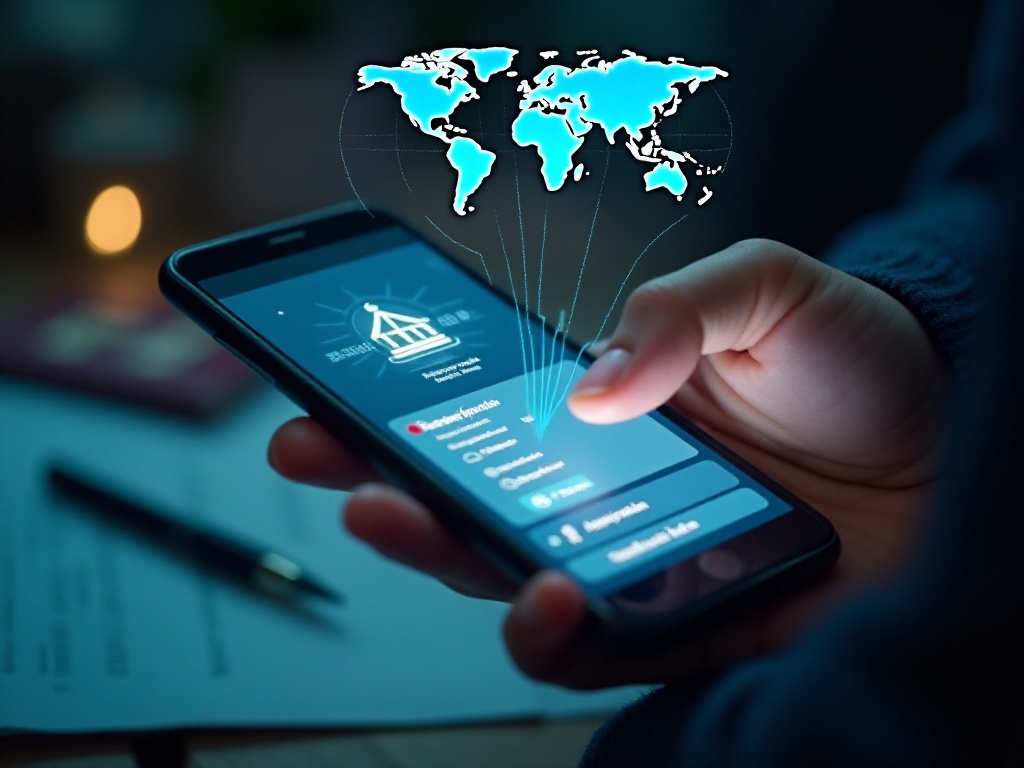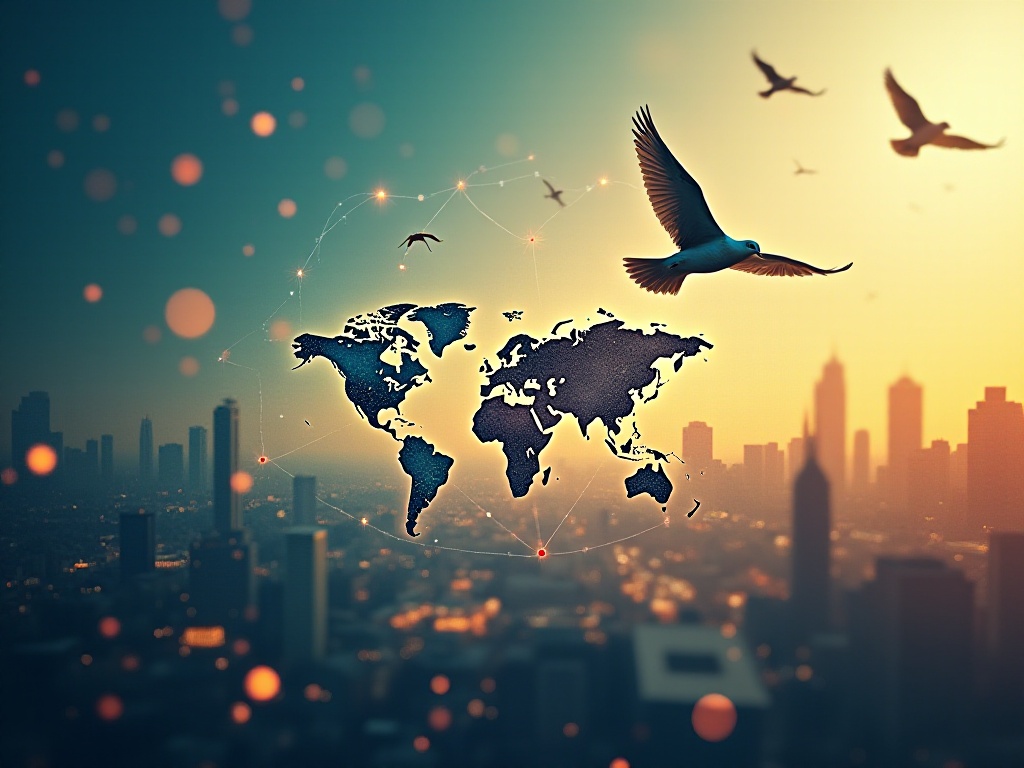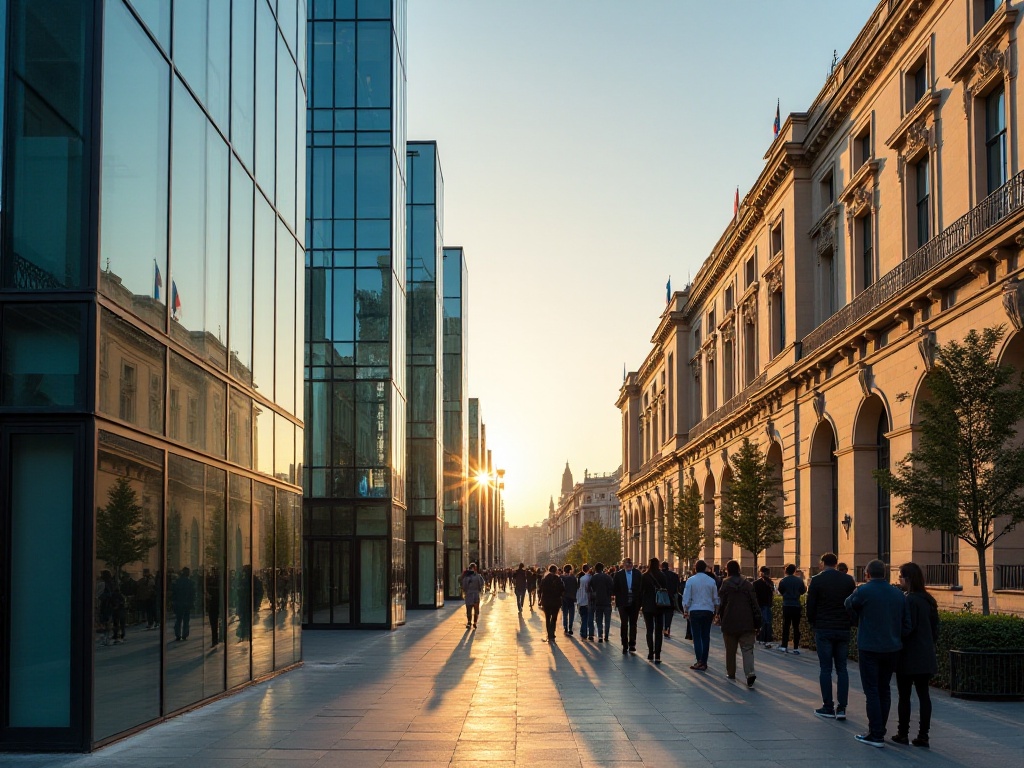Why I'm Writing This
Hello everyone! As a travel blogger who frequently travels around the world, my inbox is constantly flooded with visa-related questions, especially about US visas - by far the most frequently asked topic. Today, I've decided to compile my years of experience applying for US visas. Having evolved from a novice to an expert myself, I hope to help you avoid some common pitfalls.
Basic Concepts
When it comes to US visas, understanding visa types is fundamental. For ordinary people like us, the most common is the B1/B2 visa. B1 is for business, and B2 is for tourism. The US Embassy is now very accommodating, typically issuing a combined B1/B2 visa that can be used for tourism, family visits, and medical treatment - incredibly convenient.
For instance, when I first applied, I was worried about whether to apply for B1 separately since I needed to attend a business conference. Later I found out there was no need to worry - just apply for B1/B2, as this dual-purpose visa covers most people's needs.
Application Process
I remember feeling completely lost during my first US visa application, finding various guides confusing. Looking back now, it wasn't that scary. Let me break it down for you.
First is filling out the DS-160 form. This form can be intimidating just by its length. But when you calm down and look at it, it's just basic information like your personal details, educational background, and work experience.
I suggest preparing all necessary materials first, such as: - Passport (ensure sufficient validity) - Educational certificates (from bachelor's to highest degree) - Work verification (the more detailed, the better) - Photo (must meet specific US visa requirements)
Then find a quiet time to fill it out slowly. During my first application, I was too hasty and wrote my home address incorrectly, which the consular officer pointed out during the interview - I nearly broke into a cold sweat. So be extra careful.
When encountering uncertain questions while filling out the form, I suggest taking screenshots and searching online or asking experienced friends. Especially for professional terminology translations, accuracy is crucial. One of my friends was extensively questioned during the interview due to inaccurate job description translation.
Scheduling the interview is the second crucial step. This really depends on luck - sometimes the wait can be several months. During my second application, I waited nearly four months for an interview slot. So if you're planning to visit the US at a specific time, start preparing your visa at least six months in advance.
The appointment system often releases new slots, so I recommend checking regularly. I once benefited from a cancellation, moving up my appointment by over a month from the original three-month wait.
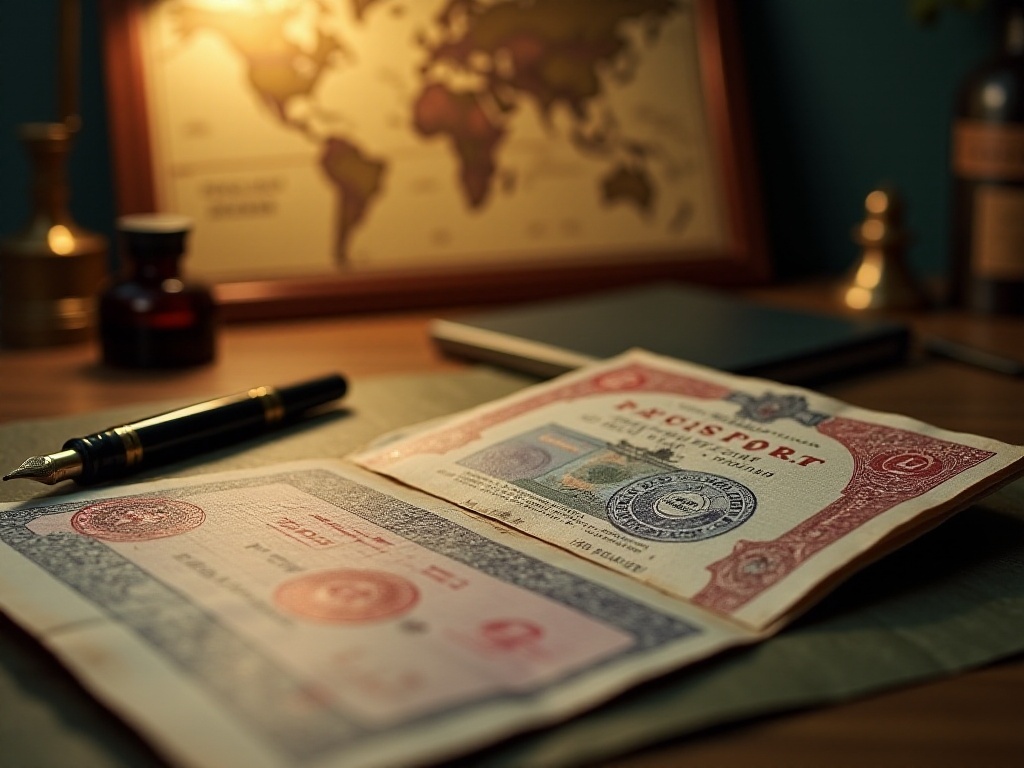
Document Preparation
Document preparation is absolutely crucial - I've seen too many visa rejections due to insufficient documentation. Let me detail the tips for preparing various documents.
Employment verification is the most critical document. You must convince the visa officer that you have stable employment in your home country and won't overstay in the US. Specifically, the employment letter should include: - Company's full name and contact information - Your position and start date - Current salary level - Leave approval (stating the company's approval for your travel during specific dates) - Company seal and authorized signature
I remember one interview where I brought the company's business license, employment certificate, salary statements, and contracts for several major projects. The visa officer was very satisfied and approved my application with barely any questions.
Proof of assets is also super important. Bank statements should cover at least the last 6 months and show stable monthly salary deposits. Fixed-term deposits are preferred over current accounts as they better demonstrate financial stability.
I recommend preparing these financial documents: - Bank statements (last 6-12 months) - Fixed-term deposit certificates - Property deed (if any) - Vehicle registration (if any) - Other significant asset proof (like stocks, funds, etc.)
During my last interview, the process went very smoothly because I had prepared comprehensive financial documentation. I brought not only bank statements but also property deeds and investment certificates, showing the visa officer my strong economic ties and social relationships in my home country.
If it's your first time traveling abroad, I suggest preparing more documentation of your domestic social ties, such as: - Family members' information and contact details - Property certificates (parents' can work too) - Social security payment records - Housing fund payment records
While these materials might not all be needed, it's better to have them ready than to scramble at the last minute. I have a friend who had to make an extra trip because they didn't bring enough supporting documents when asked during the interview.
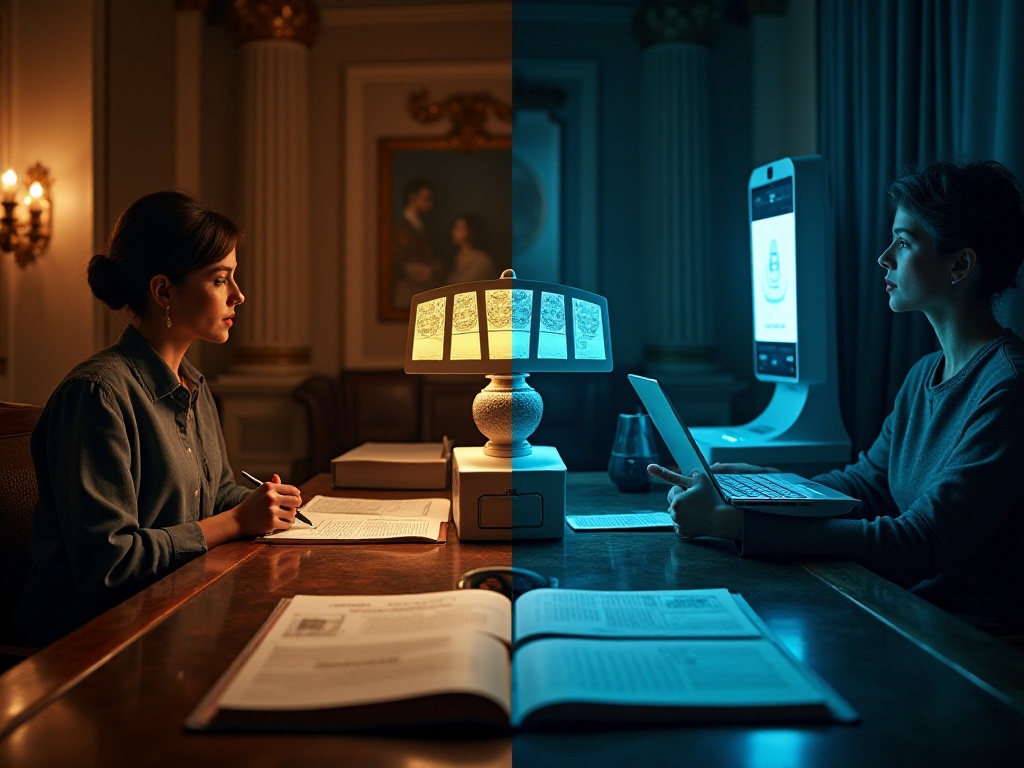
Interview Tips
The interview might be the most nerve-wracking part of the visa process, but there's nothing to fear if you're well-prepared. Let me share my interview experience from over the years.
Attire creates the first impression - no need to be too formal, but definitely neat and proper. For my first interview, I wore a full suit with a tie, which turned out to be too formal. Now I go with business casual, like a crisp shirt with casual pants - neither too casual nor too formal.
Arrive early on interview day - I suggest at least an hour before your appointment. You'll need to go through security and queue up, and arriving early helps you stay composed. Once I almost arrived late and was extremely nervous the whole way, which affected my interview performance.
Answer questions concisely and clearly explain your situation. I remember my third US visa interview went like this:
Officer: "Why are you going to the US?" Me: "To travel to Los Angeles and New York for two weeks." Officer: "What's your occupation?" Me: "I'm a product manager at an internet company, responsible for app development. I've been working there for five years."
Just this simple exchange, and the whole process took less than 3 minutes before approval. So don't be nervous, and don't say too much irrelevant information.
Maintain eye contact during the interview and speak confidently but not eagerly. I've seen people get so nervous they started stuttering, which can make the visa officer suspicious. Keep a calm attitude, treat it like a normal conversation.
Try to answer in English if the officer asks questions in English. However, if you really can't understand or express yourself clearly, it's perfectly fine to request speaking in Chinese. I've seen many people with limited English skills get approved using Chinese.
Common Misconceptions
Over the years, I've noticed many people fall into certain traps when applying for US visas. Let me address the most common misconceptions.
The first misconception is that more savings are better. Many people try to deposit a large sum of money right before the interview, which is actually a very wrong approach. Visa officers can easily spot these sudden deposits in your bank statements and become suspicious. What matters isn't the amount of money, but the stability and reasonable source of your funds.
I know a business owner who normally had a few hundred thousand in company operating funds, but suddenly deposited several million before the interview. The visa officer questioned the source of funds, and the application was rejected. So maintain your normal financial status - don't try to make special preparations.
The second misconception is that travel itineraries need to be extremely detailed. I made this mistake on my second application, spending several days creating a very detailed itinerary that the visa officer didn't even look at. Later I realized that visa officers care more about your intention to return home than your specific travel plans.
Of course, this doesn't mean you shouldn't prepare an itinerary at all, but don't make it too detailed. Knowing which cities you'll visit and how long you'll stay is enough. In my later applications, I just prepared a rough itinerary.
The third misconception is thinking you need to bring tons of documents. Actually, quality matters more than quantity - focus on documents that prove your stable employment and financial capability. I've seen people bring thick stacks of documents, only to appear flustered shuffling through them during the interview.
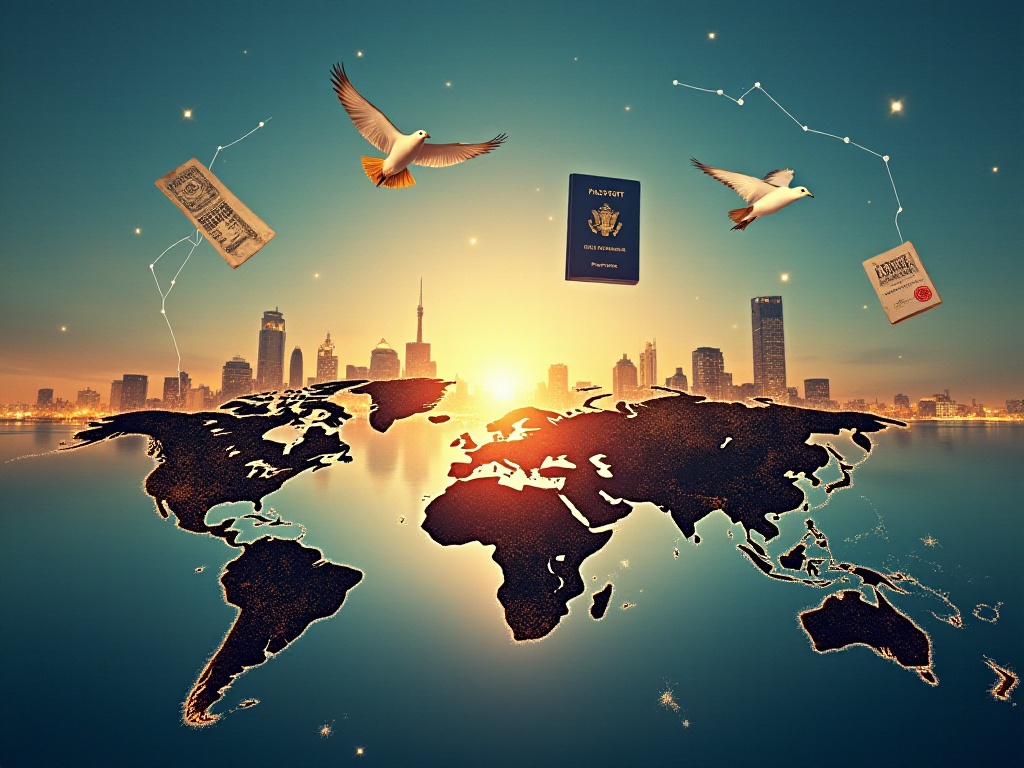
Special Situations
Sometimes you might encounter special situations, so I'll share some handling experience for these cases.
If you're a freelancer without fixed employment, document preparation becomes more specialized. One of my followers, a freelance writer, prepared materials like this: - Income proof for the past three years - Complete tax records - Major client contracts - Published work samples - Personal website or studio documentation
These materials collectively proved that although he didn't have fixed employment, he had stable income sources and career development.
Recent graduates are another special case, as they lack work experience and need to prove themselves in other ways. For example, one of my followers, a recent master's graduate, prepared these materials: - Graduation and degree certificates - Signed employment contract - Internship certificates and recommendation letters - Scholarship certificates - Student organization activity certificates
These materials showed that although she had just graduated, she had clear career plans and development direction.
For housewives or retirees, prepare more family relationship documentation: - Spouse's employment and income proof - Complete family asset documentation - Children's education or employment proof - Pension or retirement income proof
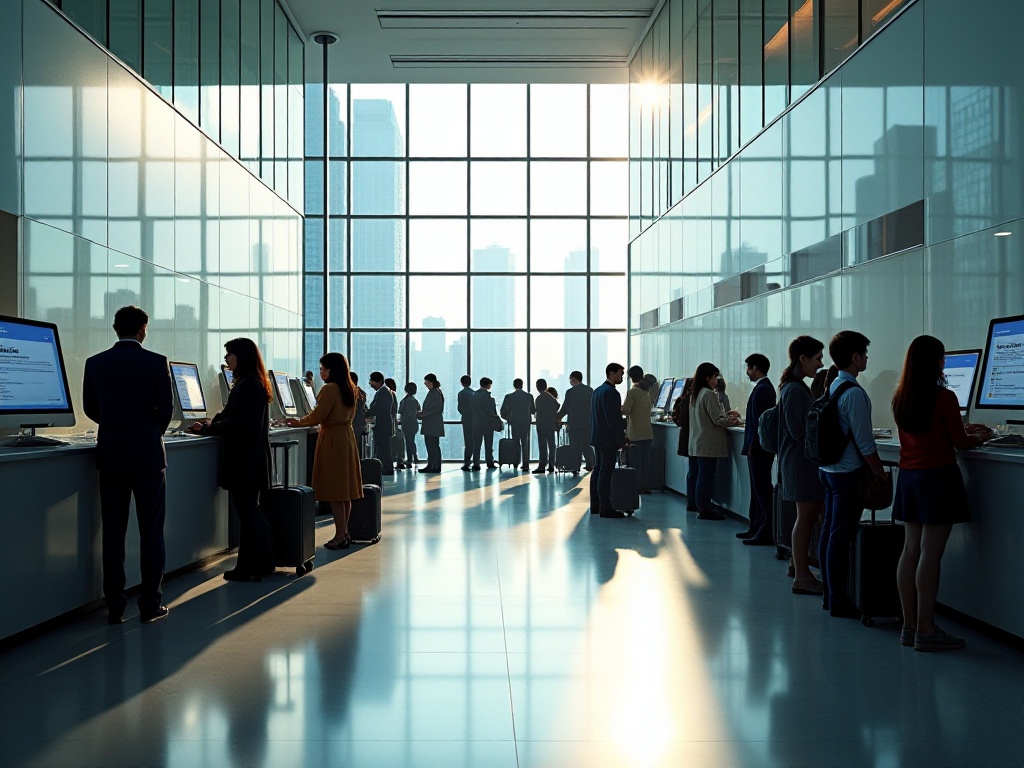
Handling Rejection
Don't be too discouraged if your application is rejected - it's really not a big deal. I know a travel blogger who was rejected on first attempt but approved a year later when reapplying.
After rejection, the most important thing is analyzing the reason. Usually, the visa officer provides a reason, though it might be general. Think carefully about possible causes:
- Was the employment proof insufficient?
- Was the financial proof inadequate?
- Was your interview performance not good enough?
- Was the travel purpose unclear?
After identifying the reason, supplement materials and improve accordingly, then wait for an appropriate time to reapply. My blogger friend was initially rejected due to insufficient employment proof, but was approved on the second try after preparing more detailed work documentation and project experience.
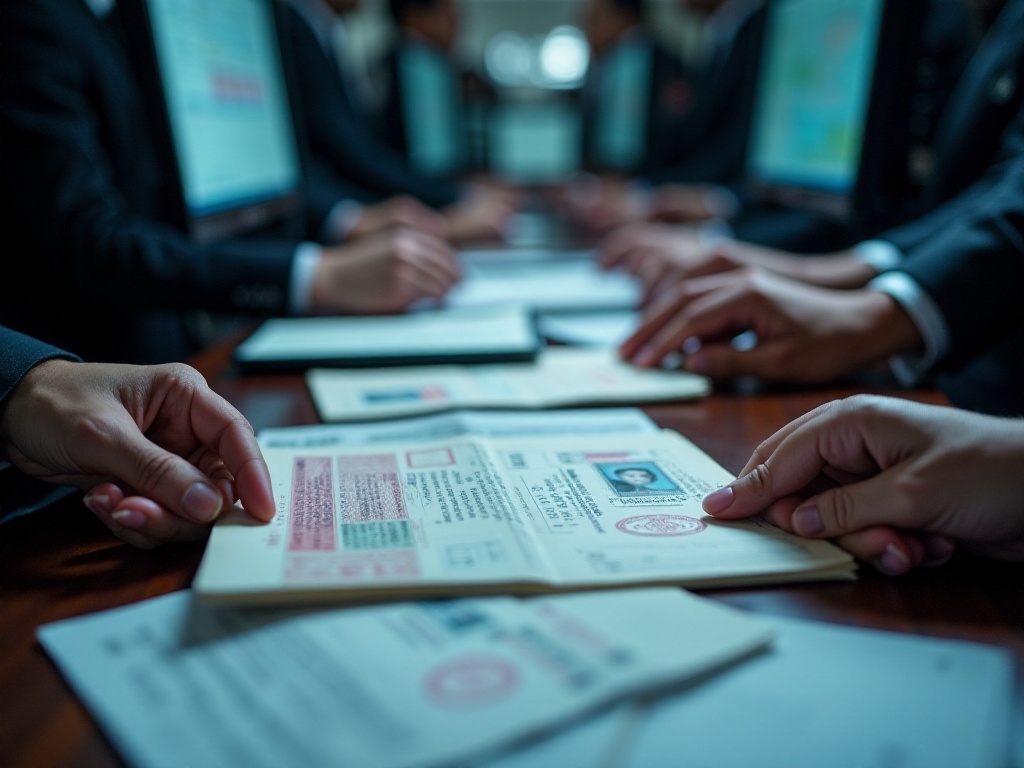
Personal Advice
From years of experience, my biggest takeaway is: honesty is truly the best policy. Don't try to falsify application materials, as visa officers are experienced and can spot this easily.
Moreover, information systems are now interconnected. If caught providing false information, not only will your current application be rejected, but future applications will become very difficult. I know someone who created fake salary statements to show higher income, got caught, and was rejected - and couldn't reapply for several years.
Before applying, I recommend these preparations: 1. Determine your travel purpose and plans 2. Assess if your financial resources are sufficient 3. Check if your work and life are stable 4. Prepare complete supporting documents 5. Maintain a positive attitude
Remember, visa officers are most concerned about whether you'll return on time, so demonstrate your stable ties in your home country from various aspects.
If it's your first application, consider applying for visas to other countries first to build up travel records. Before my first US visa application, I already had Japanese and European visa records, which somewhat increased my success rate.
Finally, I want to say that while US visa applications require serious preparation, don't be too nervous. Stay calm, prepare thoroughly, and I believe you'll successfully get your visa.
I hope my experience sharing helps you. If you have any specific questions, feel free to leave comments for discussion.


